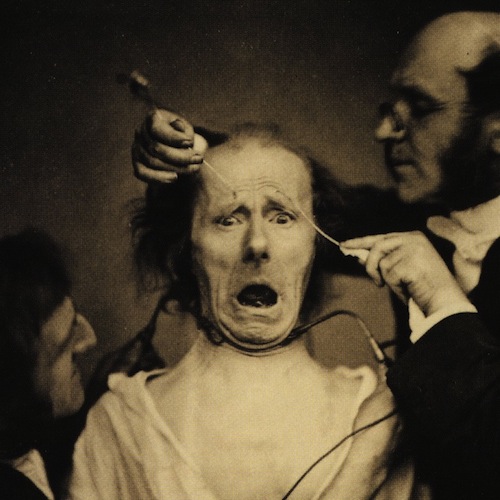 Evolution
Evolution
“Creepy,” “Ghoulish,” “Not the Best Science”

“Creepy,” “ghoulish,” “not the best science” — these are a few indisputable descriptions applied (by Wired magazine) to an experiment Charles Darwin conducted in 1868. He was getting ready to write his book The Expression of the Emotions in Man and Animals and set out to sample reactions from all of 24 human subjects as they responded to and characterized a series of creepy, ghoulish photographs by French physiologist Benjamin Duchenne. The photos show
a guy being prodded in the face with an electrical current. Darwin then asked his guests-cum-guinea pigs to describe the emotion displayed in each photo. Was the subject happy? Sorrowful? Cheeky? Darwin hoped to determine what universal core emotions exist (if any) and what culturally modified variations branch from them.
Cambridge University’s Darwin Correspondence Project was inspired by the experiment and conducted it anew using the same photos but a much larger sampling of viewers, some 18,000 in all.
Interestingly, the experimenters found that, far from being “wired” or somehow part of our animal nature, the way we interpret what facial expressions mean is culturally, not just biologically determined. Less than a century and a half later, for example, the meaning of a certain expression (produced when the “zygomaticus minor (left side), corrugator supercilli” muscles are galvanized) is read as indicating the subject is “confused.” In Darwin’s day, it meant he was “crying from grief.”
Of the emotions, Wired notes that “You might say they’ve evolved.” Yes but not, apparently, in the familiar Darwinian sense.
Image credit: Wikicommons.
